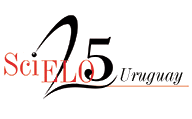Guilt and moral suffering in Nietzsche and Dostoevsky. Two readings of Crime and Punishment
DOI:
https://doi.org/10.25185/17.5Keywords:
Guilt, Truth, Nietzsche, Dostoevsky, RaskolnikovAbstract
This paper addresses the problem of guilt in Dostoevsky's novel Crime and Punishment, specifically in the analysis of the behavior of the protagonist, Rodion Raskolnikov, who, despite having committed an apparently perfect crime, feels the impulse to confess his crime. In the context of this analysis, Dostoevsky's position, with chrisoots, will be compared with Nietzsche's theory of guilt, which is presented in the second part of the Genealogy of Morals. The paper will conclude with a reflection on the relationship established by both authors between guilt and truth.
Downloads
References
Ansell-Pearson, Kevin, ed. A Companion to Nietzsche. Oxford: Blackwell, 2009.
Berdiaev, Nicolay. El credo de Dostoievski. Barcelona: Apolo, 1978.
Dostoievski, Fiodor. Crimen y castigo. Madrid: Alianza, 2016.
Dostoievski, Fiodor. El idiota. Madrid: Alianza, 2016.
Dostoievski, Fiodor. Los demonios. Madrid: Alianza, 2017.
Dostoievski, Fiodor. Los hermanos Karamazov. Madrid: Alianza, 2017.
Dostoievski, Fiodor. Apuntes del subsuelo. Madrid: Alianza, 1991.
Dostoievski, Fiodor. The Diary of a Writer, Vol. I-II, Trans. and ed. Boris Brasol. New York: Farrar, Strauss and Giroux (Octagon Books), 1973.
Frank, Joseph, Dostoievski. Los años milagrosos, 1865-1871. [Biografía, Tomo IV]. Ciudad de México: FCE, 2010.
Giménez, Constanza. “El mal en Dostoievski”. Revista de Humanidades 8-9, (2004): 35-52.
Guardini, Romano. El universo religioso de Dostoyevski. Buenos Aires: Emecé, 1954.
Höffe, Otfried. “Ein Thier heranzüchten, das versprechen darf”. En Friedrich Nietzsche. Zur Genealogie der Moral, editado por O. Höffe (Berlin: Akademie Verlag, 2004), 65-79.
Janaway, Christopher. “Naturalism and Genealogy”. En A Companion to Nietzsche, editado por K. Pearson (Oxford: Blackwell, 2009), 337-352.
Lem, Vanessa. La filosofía animal de Nietzsche. Santiago: Ediciones Universidad Diego Portales, 2010.
Málishev, Mijaíl. “Dostoievski y Kant: antinomia de la libertad y la felicidad”, Ciencia ergo sum 4, nº 3, (1997): 333-340. https://cienciaergosum.uaemex.mx/article/view/7140
Nehamas, Alexander. Nietzsche, la vida como literatura. FCE: Ciudad de México, 2002.
Nietzsche, Friedrich. Obras Completas I-IV. Fragmentos póstumos. Editado por Diego Sánchez. Madrid: Tecnos, 2016.
Pareyson, Luigi. Dostoievski: Filosofía, novela y experiencia religiosa. Traducido por Constanza Giménez. Madrid: Encuentro, 2008.
Pascal, Pierre, Las grandes corrientes del pensamiento ruso contemporáneo, Madrid: Encuentro, 1978.
Pezzella, Mario. Reseña de Varianti del nichilismo incarnate nei personaggi di Dostoevskij de Sergio Givone, 2006. https://www.ariannaeditrice.it/articolo.php?id_articolo=10130
Reginster, Bernard. “The Genealogy of Guilt”. En Nietzsche´s. On the Genealogy of Morality, editado por Simon May (Cambridge: Cambridge University Press, 2011), 56-77.
Salaquarda, Jörg. “Christentum”. En Nietzsche Handbuch (Stuttgart: J. B. Metzler, 2011), 207-212.
Scanlan, James. Dostoevsky, the Thinker. Nueva York: Cornell University Press, 2010.
Schacht, Richard. “Nietzsche and the Philosophical Anthropology”. En A Companion to Nietzsche editado por K. Pearson (Oxford: Blackwell, 2009), 115-132.
Skirl, Miguel. “Ressentiment”, “Unschuld des Werdens”. En Nietzsche Handbuch. (Stuttgart: J. B. Metzler, 2011), 312-313; 348-349.
Zenkovsky, Vasily. “Dostoevsky’s Religious and Philosophical Views”. En Dostoevsky, A collection of critical essays, editado por R. Wellek (Saddle River, New Jersey: Prentice-Hall, 1965), 130-145.




























 This work is under a
This work is under a 